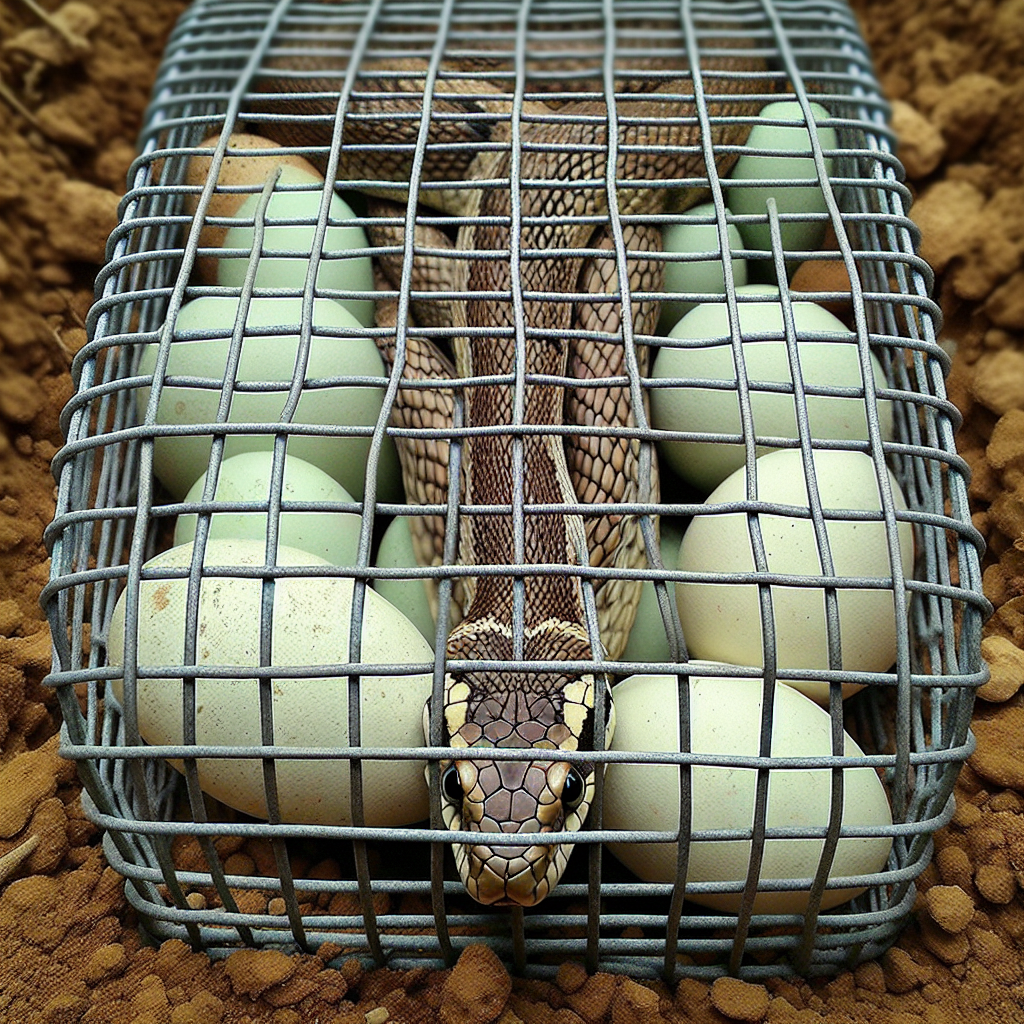Are you interested in keeping chickens but worried about the safety of your feathered friends from nocturnal predators? Look no further! In this article, we will explore some effective strategies to design a chicken coop that will keep those pesky nocturnal predators at bay. Whether it’s raccoons, foxes, or owls, we’ve got you covered with practical tips and solutions to ensure the safety and security of your cherished chickens, allowing them to rest peacefully during the night. Discover how to create a predator-proof chicken coop that will give you peace of mind and happy, healthy chickens.
Choosing the Right Location
When it comes to designing a chicken coop, choosing the right location is crucial in ensuring the safety and well-being of your feathered friends. Consider the surrounding environment by selecting an area that is free from potential hazards or disturbances. Avoid placing the coop near busy roads, loud machinery, or other sources of noise that may stress your chickens. Additionally, make sure the location provides adequate protection from extreme weather conditions such as strong winds or heavy rain.
To ensure sufficient lighting, choose a location that receives ample natural sunlight during the day. A well-lit coop not only promotes a healthier living environment but also deters potential predators. Chickens thrive in natural light, and having access to sunlight helps regulate their circadian rhythms and overall well-being. If your chosen location lacks natural sunlight, you can supplement it with artificial lighting to create a comfortable and well-lit environment for your chickens.
Another important factor to consider when selecting a location is ensuring proper drainage. Chickens need a clean and dry living space to prevent the risk of bacteria growth and diseases. Look for an area that is well-drained and avoid low-lying spots that could potentially become waterlogged. Proper drainage will help maintain a clean and sanitary coop, reducing the risk of health issues for your flock.
Designing a Secure Structure
Once you have chosen the right location, the next step is to design a secure structure that will protect your chickens from predators. This includes using strong materials that can withstand external forces and prevent unwanted access. Opt for sturdy construction materials such as pressure-treated wood or metal to ensure durability and longevity. Reinforced doors and windows will further enhance the security of your coop.
Proper ventilation is essential in maintaining a healthy and comfortable living environment for your chickens. Ensure that your coop has sufficient airflow by incorporating vents or windows that can be opened or closed as needed. Adequate ventilation helps prevent the buildup of moisture, ammonia, and odors, which can lead to respiratory issues in chickens.
Building a sturdy base for your chicken coop is crucial in preventing predators from digging their way into the enclosure. Use strong materials such as concrete or hardware cloth to create a solid foundation. A sturdy base also helps protect against pests and rodents that may try to burrow and gain access to your chickens.
To further fortify your coop against predators, it is important to install predator-proof walls. Use materials such as galvanized steel or hardware cloth with small gaps that predators cannot squeeze through. Reinforce these walls to make them sturdy and resistant to any attempts of entry.
In addition to protecting windows, it is important to secure vents in your coop. Use hardware cloth or wire mesh to cover any openings, ensuring that predators cannot reach inside. By taking these measures, you can create a secure structure that gives your chickens the protection they need.
Creating a Predator-Proof Enclosure
While a secure coop is essential, creating a predator-proof enclosure around the coop adds an extra layer of protection for your flock. When designing this enclosure, consider incorporating an apron or skirt around the perimeter of the coop. Made of hardware cloth or buried wire mesh, the apron or skirt prevents predators from digging underneath the coop to gain access to your chickens.
Burrowing is a common tactic used by predators such as foxes or raccoons to access a coop. To prevent this, ensure that the ground beneath the coop is secure and inaccessible. Place rocks or bricks along the perimeter, burying them slightly in the ground to create an obstacle for potential diggers.
Consider using electric fencing to deter predators from approaching your coop. Electric fencing delivers a harmless but startling shock to any predator that comes into contact with it. This added level of security can effectively keep nocturnal predators at bay and protect your chickens.
Predators such as snakes, raccoons, or squirrels often utilize trees or nearby structures to gain access to a coop. Protect against climbers by modifying or trimming nearby trees and branches to prevent them from reaching the coop. This will minimize the risk of predators gaining entry from above.
Utilizing predator-resistant fencing is another effective way to deter nocturnal predators. Install fencing specifically designed to prevent the intrusion of predators such as raccoons or snakes. These fences are constructed with small openings that make it difficult for predators to squeeze through, offering your flock additional protection.
By creating a predator-proof enclosure, you can significantly reduce the risk of predators harming your chickens and provide them with a safe and secure living environment.
Implementing Effective Lighting
A well-lit chicken coop not only enhances the safety and comfort of your chickens but also helps deter nocturnal predators. Implementing effective lighting strategies can greatly reduce the risk of predator attacks on your flock.
Installing motion sensor lights around the coop is an excellent way to deter predators. These lights are triggered by movement, immediately illuminating the area and startling any potential threats. Predators are less likely to approach a well-lit area, especially if they are caught off guard by sudden bright lights.
Utilizing solar-powered lights not only saves energy but also ensures that your coop remains well-lit even during power outages. Solar lights, powered by the sun’s energy, charge during the day and automatically turn on at dusk, providing continuous illumination throughout the night. This reliable and environmentally friendly lighting option ensures the safety of your chickens even in the absence of electricity.
Consider using red lights as a strategic lighting choice for your coop. Nocturnal predators have difficulty perceiving red light, making it less likely that they will be attracted to the area. Red lights also minimize disturbances to the natural sleep cycles of your chickens, allowing them to maintain a healthy routine.
To further enhance security, you can use timer-controlled lights that automatically turn on and off at specific times. This helps simulate a natural day-night cycle for your chickens and ensures a consistent lighting schedule for predator deterrence.
By implementing effective lighting strategies, you can create a safer environment for your chickens and discourage nocturnal predators from approaching your coop.
Choosing Appropriate Flooring
The choice of flooring inside your coop is an important consideration to ensure your chickens’ safety and overall well-being. Avoid wire flooring as it can cause injuries to your chicken’s feet, leading to discomfort or infection. Opt for solid flooring options that are easy to clean and provide a comfortable surface for your chickens.
One of the best flooring options for a chicken coop is hardware cloth. Hardware cloth is a strong, durable material that can effectively deter predators from digging their way into the coop. It allows for proper drainage, minimizing the risk of moisture buildup or bacterial growth. Make sure the hardware cloth is securely attached to the coop’s base to prevent predators from gaining access.
Consider using deep litter in your coop as an alternative flooring option. Deep litter involves layering straw, wood shavings, or other organic material on the coop floor. This material naturally decomposes over time, creating a warm and comfortable environment for your chickens. Deep litter also helps absorb moisture, control odors, and provide insulation during colder months.
Regardless of the floor type you choose, it is essential to keep the coop clean. Regularly remove any droppings or soiled bedding to maintain a hygienic living space for your chickens. Clean and dry flooring reduces the risk of diseases and ensures the overall health and well-being of your flock.
Providing Safe Roosting Spaces
Creating safe roosting spaces inside the chicken coop is essential for the comfort and security of your flock. Chickens naturally prefer elevated roosts to sleep, as it provides them with a sense of security and protection from ground-dwelling predators.
When designing roosting spaces, ensure they are elevated off the ground. This prevents predators from reaching the chickens while they sleep and reduces the risk of attacks from ground-dwelling animals. Use sturdy materials such as branches or wooden poles to create strong and stable roosts that can support the weight of your chickens.
Creating a predator-resistant design for the roosting area is crucial for ensuring the safety of your flock. Install solid walls or partitions around the roosting space to prevent predators from gaining access. Reinforce these walls with strong materials like hardware cloth or galvanized steel to ensure they cannot be easily breached.
It is important to provide enough roosting space for all your chickens. Overcrowding can increase stress levels and lead to aggressive behavior among the flock. Ensure there is sufficient roosting space for each chicken, allowing them to comfortably perch without feeling cramped or crowded.
Regularly monitor the roosting areas for signs of mites or lice. These external parasites can cause discomfort and health issues for your chickens. If you notice any infestations, take prompt action to address the problem, such as employing appropriate treatments or consulting a veterinarian.
By providing safe and secure roosting spaces, you can ensure your chickens have a peaceful and protected sleeping environment.
Implementing Effective Nesting Boxes
Nesting boxes are essential for your chickens to lay eggs comfortably and securely. When designing your coop, it is important to provide appropriate nesting boxes that meet the specific needs of your chickens.
Secluded nesting boxes offer privacy and security for your hens. Place the boxes in a quiet and closed-off area of the coop to provide an environment conducive to egg-laying. This reduces stress levels in your hens and encourages them to lay their eggs in a safe and controlled space.
Make the nesting boxes dark and cozy to mimic the conditions that a hen would naturally seek out when laying eggs. Use materials such as straw or shavings as bedding to provide a soft and comfortable nesting surface. The darkness and coziness of the boxes create a calming environment that encourages your hens to lay their eggs without distractions or disturbances.
Consider using fake eggs in the nesting boxes as a way to encourage hens to lay their eggs in the desired location. Fake eggs, also known as ceramic or plastic nest eggs, mimic the appearance and texture of real eggs. They serve as a visual cue to hens, signaling that it is a suitable spot for egg-laying. This simple trick can guide your chickens to utilize the nesting boxes consistently.
Regularly collect eggs from the nesting boxes to discourage brooding behavior and prevent eggs from accumulating. This helps maintain a clean and hygienic environment in the nesting area, reducing the risk of bacteria growth or egg breakage. Collecting eggs promptly also ensures that they remain fresh and intact for your consumption.
By implementing effective nesting boxes, you provide your hens with a comfortable and secure space to lay their eggs, which contributes to their overall health and productivity.
Securing Food and Water Sources
Ensuring that your chicken’s food and water sources are secure is vitally important in deterring nocturnal predators. Predators are often attracted to coops in search of an easy meal, making it essential to take measures to protect your flock’s food and water.
Use lockable feeders and waterers to prevent predators from accessing your chickens’ food supply. These lockable devices restrict access and require a human hand to open, effectively keeping nocturnal predators out. Lockable feeders and waterers also prevent spillage, reducing the risk of attracting predators with the smell of food or water.
Keep your chicken’s food stored in a secure area such as a sealed container or a designated feed room within the coop. This prevents any access or tampering from predators and ensures that the food remains fresh and uncontaminated.
Avoid spilling food or water in and around the coop. Spilled food or water can attract unwanted predators, increasing the risk of threats to your flock. Regularly clean up any spills to maintain a clean and predator-free environment.
Regularly clean feeders and waterers to prevent the buildup of bacteria or mold, which can be harmful to your chickens’ health. Wash and disinfect these containers, ensuring they are free from any contaminants that could potentially harm your flock.
By securing your chicken’s food and water sources, you can eliminate the risk of attracting nocturnal predators and provide your flock with a consistent and reliable source of nutrition.
Maintaining a Clear Perimeter
Maintaining a clear and well-maintained perimeter around your chicken coop is essential in preventing predator access. This involves regular upkeep and maintenance to create a safe and secure environment for your flock.
Trim vegetation around the coop regularly to reduce hiding spots for potential predators. Overgrown bushes or tall grass can provide cover for unwanted visitors, making it easier for them to approach the coop undetected. Keep the area around the coop clear and well-groomed to minimize hiding spots.
Clear away any debris or clutter that may attract predators. Fallen branches, woodpiles, or other items can provide convenient hiding places for nocturnal predators. Regularly inspect the immediate surroundings of the coop and remove any potential hiding spots to discourage unwanted visitors.
Minimize attractants that could lure predators to your coop. This includes securing any compost piles, garbage bins, or food sources that might entice nocturnal animals. By eliminating these attractants, you reduce the chances of predators approaching your coop in search of food.
Regularly inspect and repair fences to ensure their effectiveness in preventing predator intrusion. Check for any loose boards, gaps, or damage that could compromise the security of your coop. Repair or reinforce any weak areas promptly to maintain a strong and impenetrable barrier against predators.
Utilize motion-activated sprinklers to deter predators from approaching your coop. These sprinklers are triggered by movement and release a burst of water, startling and deterring potential threats. The unexpected spray of water serves as a strong deterrent, discouraging predators from getting too close to your flock.
By maintaining a clear perimeter and minimizing potential hiding spots, you create a safe and secure environment that effectively deters nocturnal predators from approaching your coop.
Implementing Security Measures
Implementing additional security measures can further enhance the safety and protection of your chicken coop. By utilizing modern technology and other deterrents, you can significantly reduce the risk of predator attacks.
Installing security cameras around the coop provides you with additional monitoring and surveillance capabilities. These cameras act as a deterrent, as potential predators are less likely to approach a coop that is under constant surveillance. Security cameras also allow you to identify any potential threats and take appropriate action promptly.
Utilize an alarm system that triggers an alert if someone attempts to breach the coop. Alarms serve as a highly effective deterrent, both for human intruders and some animal predators. The loud noise produced by the alarm can scare away nocturnal predators and alert you to any potential threats.
Using noise deterrents can help keep predators at bay. Noise-making devices such as ultrasonic repellents emit high-frequency sounds that are unpleasant to nocturnal animals. These deterrents are inaudible to humans but act as an effective defense against common predators.
Keeping trained guard animals such as dogs can greatly enhance the security of your coop. Dogs possess natural instincts for protecting their territory and can effectively deter predators. They serve as a constant presence and are capable of warding off potential threats.
By implementing various security measures, you can greatly reduce the chances of predator attacks on your coop. These measures provide additional layers of protection, ensuring the safety and well-being of your chickens.
In conclusion, designing a chicken coop to deter nocturnal predators requires careful planning and consideration. By choosing the right location, designing a secure structure, creating a predator-proof enclosure, implementing effective lighting, choosing appropriate flooring, providing safe roosting spaces, implementing effective nesting boxes, securing food and water sources, maintaining a clear perimeter, and implementing security measures, you can create a safe and secure environment for your chickens. By taking these comprehensive steps, you ensure the well-being of your flock and minimize the risk of predator attacks. Happy coop designing!




